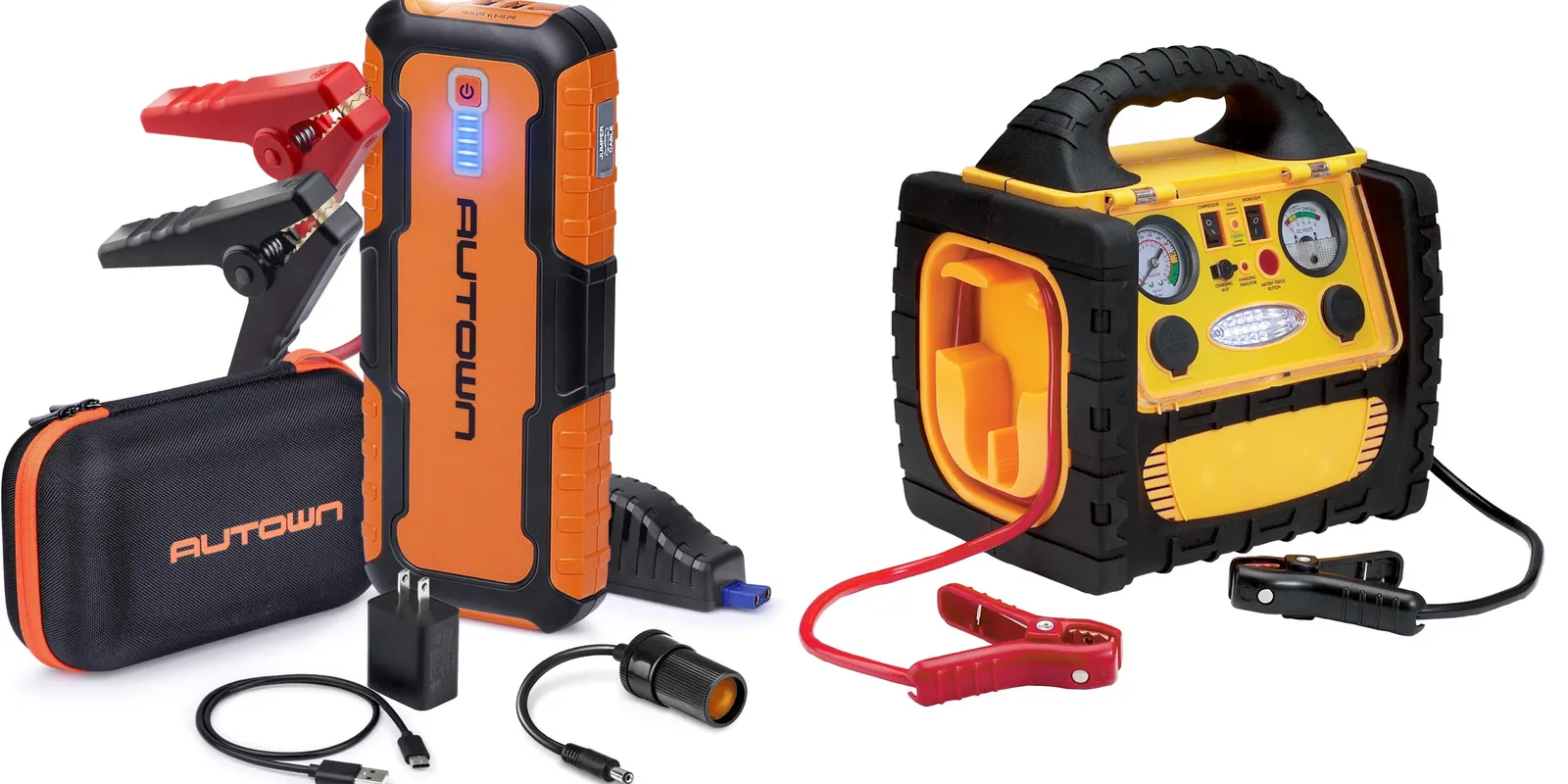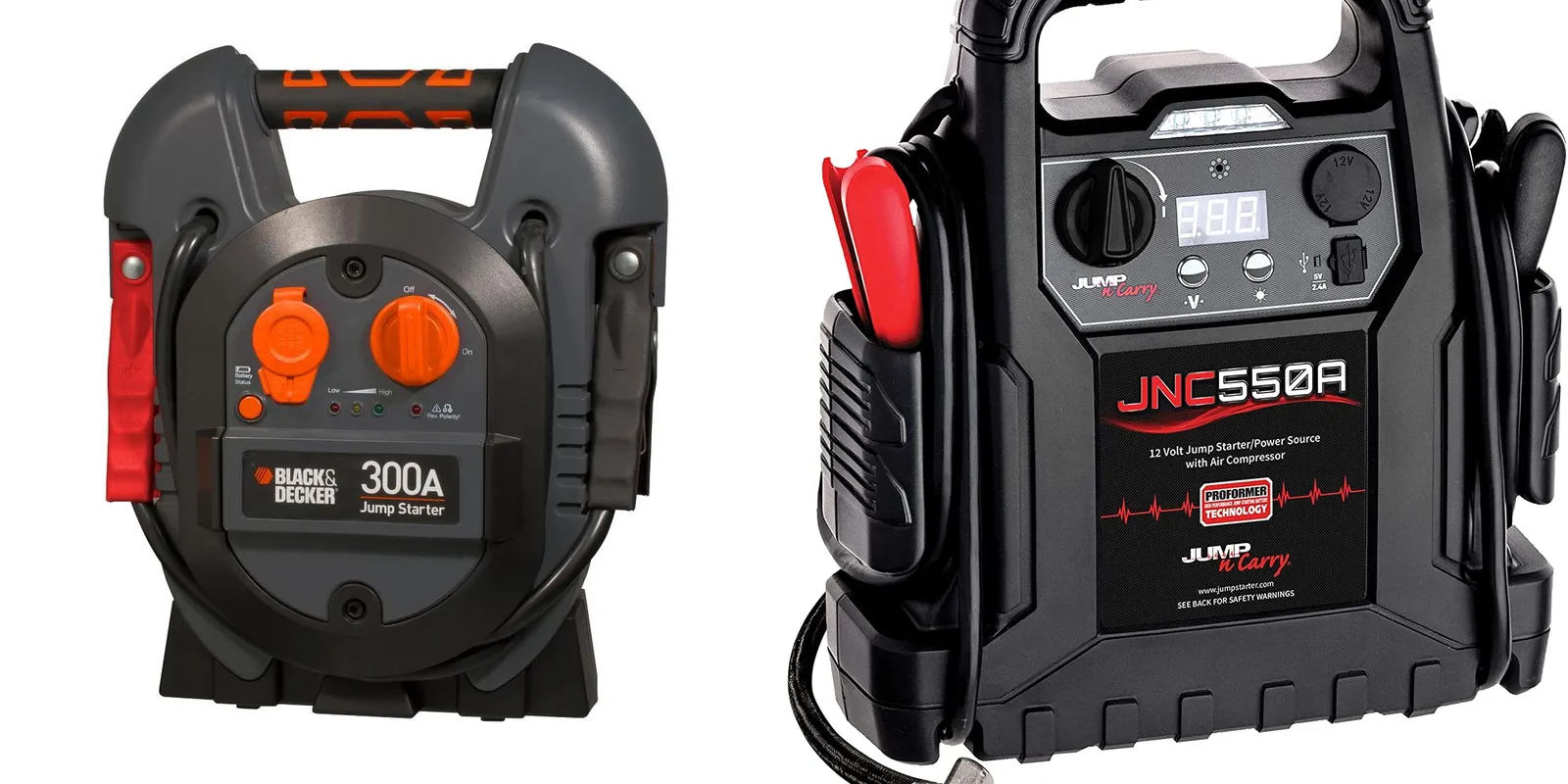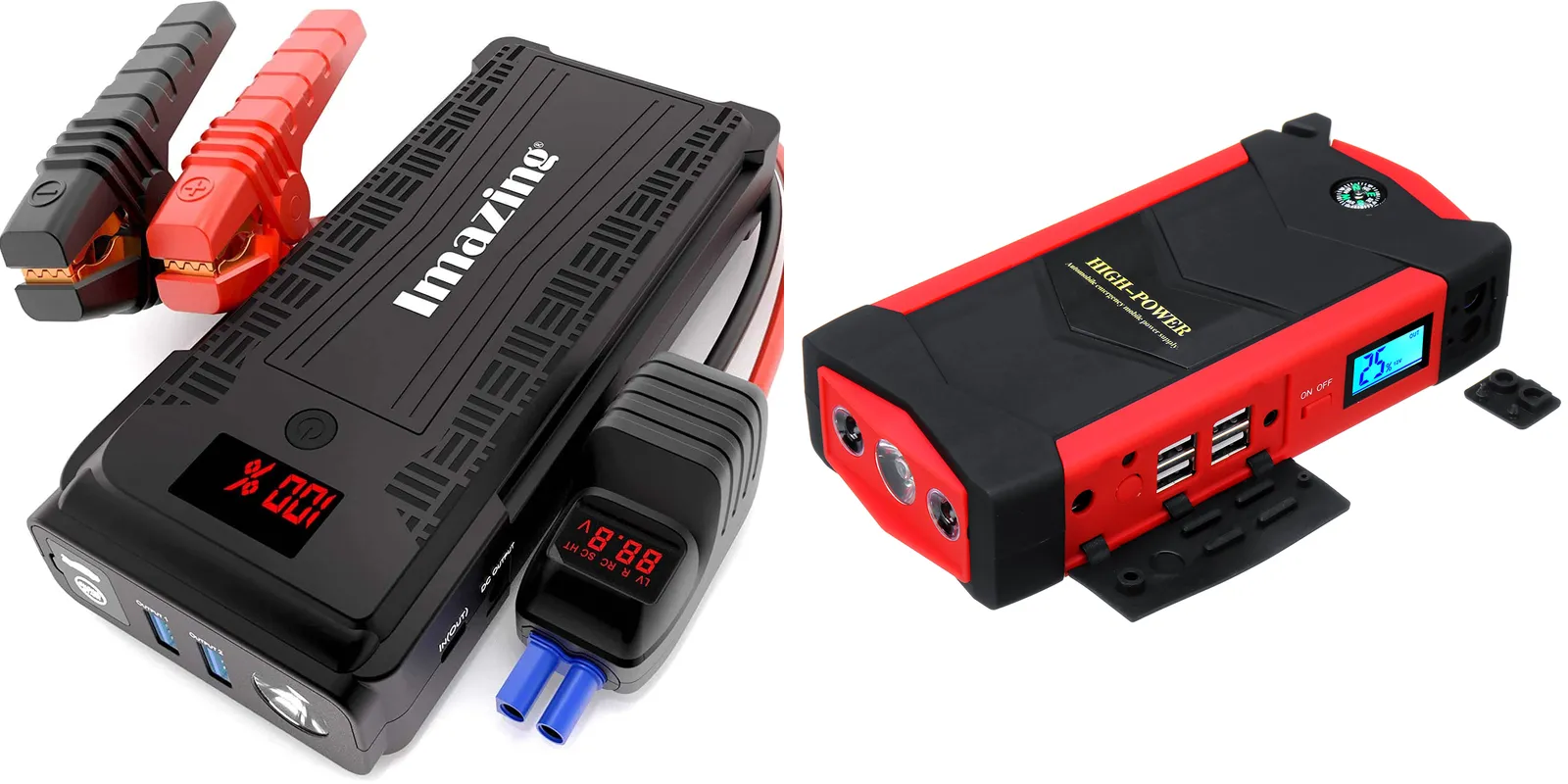Are you looking for a way to jump start your career in the modern world? Are you feeling stuck in a rut? If you answered yes to either of those questions, ia oqo na kena itukutuku me baleti iko. Ena itukutuku oqo, we will outline a step-by-step guide on how to jump start your career. We will provide you with tips and advice on how to create a resume, interview well, and network. By following our tips, you will be on your way to a successful career in the modern world.
Identify the Starter and Access Points
Where the starter is located in a typical vehicle
Na starter is located in the engine compartment of most vehicles. It is a small, round, metal device that helps turn the engine over. Ia,, in some cars, this location may be different.
The tools needed to access the starter
In order to access the starter, you will need the following tools:
- A computer with internet access
- The Google Chrome browser
- The Adobe Flash Player
- The Adobe Acrobat Reader
- A valid Google account
- A credit card or PayPal account

how to Jump A Starter: Precautions Before Jumping the Starter
Safety precautions that need to be taken before starting
There are a few things that you should do before jumping your starter.
- Make sure your car is in the park position and that all of the lights are on. This will help ensure that your car will not start.
- Tarava, check the battery to make sure that it is fully charged.
- Kena iOtioti, make sure that the car is in the correct gear. Jumping the starter without the car in the correct gear can damage the starter.
Tips for minimizing the risk of damage to the vehicle
When jumping the starter, it is important to take the following precautions to minimize the risk of damage to the vehicle or yourself:
- Check the battery voltage before jumping the starter. If the battery is low on juice, the starter may not start.
- Make sure the car’s engine is off.
- Wear safety goggles and a protective face mask.
- Wear sturdy shoes.
- Make sure the cables are properly connected.
- Use a jumper cable that is of the correct size.
- Be sure to have a safe place to land.
how to Jump A Starter: Connect the Jumper Cables
Step-by-step instructions for connecting the jumper cables
- Park your vehicle so that the front and rear ends are facing opposite directions.
- Connect the red (+) cable to the vehicle’s positive battery cable.
- Connect the black (-) cable to the vehicle’s negative battery cable.
- Turn the key in the ignition to the “On” position.
- Wawa 30 sekodi, and then turn the key off.
- Reconnect the cables in the reverse order.
Explanation of what each cable is for
Jump starters come equipped with a variety of cables that can be used for a variety of purposes. Here is a guide on what each cable is for:
- Red cable: This cable is used to start the engine of the jump starter.
- Black cable: This cable is used to connect the jump starter to the battery.
- Yellow cable: This cable is used to connect the jump starter to the charger.
- Green cable: This cable is used to connect the jump starter to the vehicle.
- Blue cable: This cable is used to connect the jump starter to the light.

how to Jump A Starter: Starting the Vehicle
Steps to start the vehicle after the jumper cables are connected
If you find yourself stranded on the side of the road with a dead battery, kakua ni taqeya! There are a few simple steps you can take to get your car started.
- iMatai, make sure the battery is fully charged.
- iKarua ni, connect the jumper cables as close to the battery as possible.
- iKatolu, start the engine.
- iKava, hold down the accelerator and the brake pedals and wait for the car to start.
- Fifth, release the accelerator and the brake pedals and the car should start.
- Sixth, drive to a safe location.
- Seventh, disconnect the jumper cables.
Troubleshooting tips in case the vehicle doesn’t start
If the vehicle doesn’t start, there are a few things that you can do in order to help troubleshoot the issue.
- Make sure that you have a working battery. If the battery is not working, you’ll need to replace it. Tarava, try starting the engine by pressing the gas pedal down and holding it for a few seconds. Kevaka e sega ni rawa oqori, you may need to take your car to an authorized service center in order to get it fixed.
- Check whether or not there is any oil in the engine. Kevaka e tiko na, you’ll need to add some before trying to start the car again.
- If it won’t start, make sure that the cables are properly connected and have the GS run his or her engine for five minutes. Then try to start your car again. If it still won’t start, your battery may be beyond help.
how to Jump A Starter: Removing the Jumper Cables
Step-by-step instructions for removing the jumper cables
If you’re like most drivers, you’ve probably had to remove jumper cables at some point in your life. But have you ever wondered how to do it properly? Here are step-by-step instructions for removing jumper cables.
- Make sure all your lights are turned off.
- Disconnect both jumper cables from the car.
- Make sure the red (Positivi) cable is connected to the car’s battery, and the black (Nekativi) cable is connected to the car’s ground.
- Hold both cables taut and pull them away from the car.
- Be careful not to touch the cables while they’re still connected to the car.
- If the cables are still connected to the car, twist each one once and pull it free.
Precautions to take when removing the cables
When it comes to jump starting your car, you want to make sure that you take the proper precautions to avoid any injuries. Here are a few tips to keep in mind when removing the cables of your jump starter:
- Always wear gloves when jumper starting your car. Not only will they protect your hands from injury, but they will also keep any dirt or debris from getting on the cables.
- Make sure the car is fully stopped before you start the jump starter. If the car is moving, the cables could become tangled and could cause injuries.
- Make sure the cables are fully unplugged before you remove them from the jump starter. If you leave some slack in the cables, they could become tangled and cause injury.
- Never use the jump starter if the cables are damaged in any way. If the cables are damaged, they could become exposed and could cause injury.
- Always use caution when using a jump starter. Kevaka e dua na leqa, be sure to contact a qualified technician to get the jump starter fixed.
how to Jump A Starter: Testing the Battery and Charging System
How to test the battery and charging system
When testing the battery and charging system of a jump starter, it is important to first check the integrity of the battery. This means ensuring that the battery is not damaged and is able to hold a charge.
- Me vakayacori oqo, you can use a simple multimeter and set it to measure DC voltage. Connect the positive lead of the multimeter to the positive terminal of the jump starter battery, and the negative lead to the negative terminal. The multimeter should show a voltage reading between 12-14 kaukauwa kaukauwa, which indicates that the battery is in good condition.
- Tarava, you will need to check the charging system of the jump starter. Me vakayacori oqo, you will need to connect the jump starter to a charger. Once the charger is connected, turn the jump starter on and set it to the charging mode. The charging system should then begin to charge the battery.
- It is important to monitor the charging system and battery during the charging process. You should look for any voltage drops or other irregularities that might indicate a problem with the charging system or the battery. If you notice any strange behavior, it is best to stop the charging process and have the system checked by a professional.
- Kena iOtioti, after the charging process is complete, you should again measure the voltage of the battery with a multimeter. This should be done to ensure that the battery is properly charged and that the charging system is functioning properly. The voltage should be between 12-14 kaukauwa kaukauwa, just like when you initially tested the battery.
By following these steps, you can easily test the battery and charging system of a jump starter and make sure that it is in good working order. It is important to regularly check the battery and charging system of your jump starter to ensure that it is ready to go when needed.
Tips for monitoring the vehicle’s performance after jump starting
It is not recommended to jump start a car without first checking the vehicle’s performance. By following these tips, you can improve your chances of success.
- Check the vehicle’s oil level and filter status.
- Vakadeitaka ni sa vakataotaki taucoko na bateri.
- Disconnect any unboltable accessories, such as the air bag system, power steering, and brakes.
- Remove all screws that cover the engine and transmission boards. Disconnect those boards if they are not needed for jump starting.
- Place the car in a standing position, with both doors open and windows down.
- Insert the jumper cables into each end of the battery cable and plug them into an outlet.
how to Jump A Starter: Checking the Starter
Explanation of how to check the starter after jump starting
- Start the vehicle and allow it to idle for a few minutes. This will give the battery enough time to charge and the starter time to warm up.
- Check to make sure the headlights, retio, and other electrical components are working correctly. Kevaka e sega, the starter may not be working properly.
- Listen for a clicking sound when you turn the ignition key. If you hear a click, the starter is engaging the flywheel and turning the engine over, but it may not be spinning fast enough to start the engine.
- Check the battery voltage with a voltmeter to make sure it is above 12.6 kaukauwa kaukauwa. Kevaka e sega, the starter is not receiving enough power to start the engine.
- Inspect the starter for any signs of damage or wear. Look for loose connections and check that the starter is firmly mounted. If it is loose or damaged, it may not be spinning fast enough to start the engine.
- Check the starter’s solenoid to make sure it is operating correctly. Kevaka e sega, the starter may not be engaging the flywheel.
- If all the above steps have been checked and the starter is still not working, ena gadrevi beka me vakaisosomitaki.
If you are ever having starter problems, it is important to follow these steps to troubleshoot them:
- Make sure the battery is properly fitted and charged.
- Check whether the starter motor is working properly. Kevaka e sega, then you may need to replace it.
- Be sure that the starter cord is connected securely to the electrical outlet. Kevaka e sega, then it may have been damaged or cut by someone else.
- Look for any dirty or damaged parts of the starter motor. These can cause problems with starting the engine.
- Try changing out any old batteries if they have not been used in a while. This can help increase the life of your starter motor.
iVakaleka
If you’re looking to jump start your cycling career, there is no better way than by starting with a beginner’s class. This guide has shown you about how to find the right class, how to prepare for your first ride, and how to jumpstart your cycling journey. And we hope this article can really help you!
